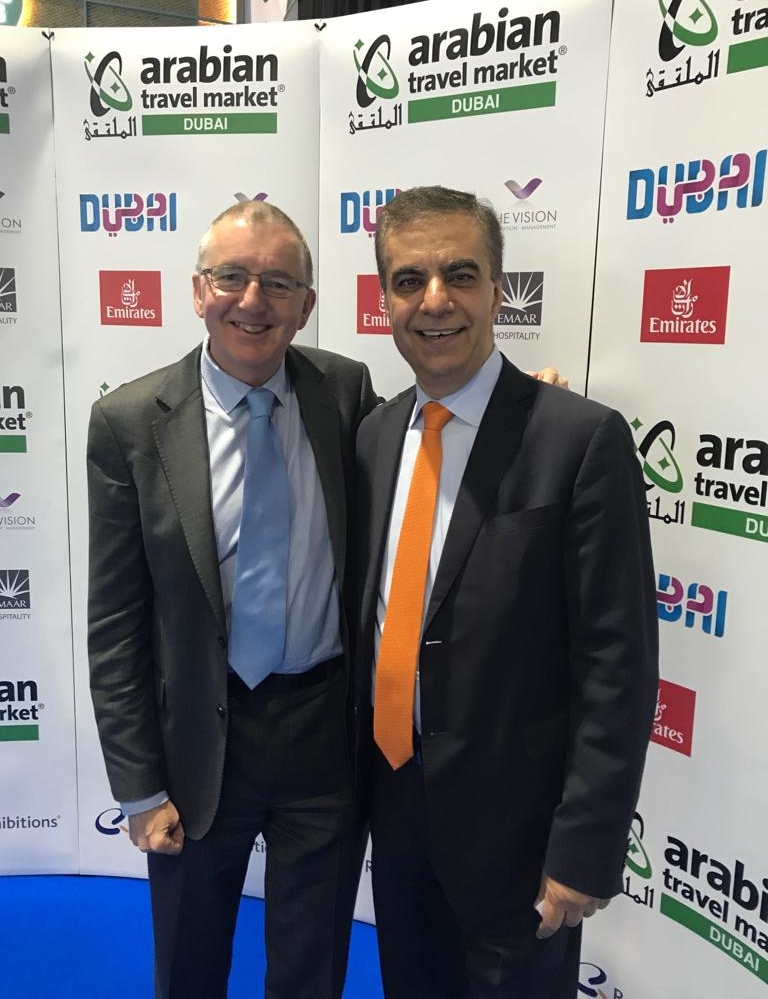 Air Arabia celebrated its 15th anniversary in 2018. It’s been an amazing success story of trail
blazing the LCC model in the Gulf.
Air Arabia celebrated its 15th anniversary in 2018. It’s been an amazing success story of trail
blazing the LCC model in the Gulf.
At the helm from the start has been Bahraini CEO Adel Ali, who I’ve known since we were considerably younger! In the late 1980’s I was a network planner for British Airways and Adel was responsible for the airline’s sales and marketing in Bahrain and a regular visitor to Heathrow to lobby for more capacity. He jokes that his career has gone downhill from selling Concorde seats (yes, BA used the aircraft to Bahrain for a while) through the glory days of Gulf Air to LCCs!
When Air Arabia was first established, the Low Cost model was unknown in the region and there was scepticism about its viability. Conventional wisdom suggested that there was little price sensitive demand for LCC services in the Middle East, in reality the market has proved to be no different to anywhere else. Air Arabia has long since proved the sceptics wrong.
Adel and his team set up the airline in just 6 months, as a “copy paste” of the best bits from established LCC’s (he points out the skill isn’t so much in copying, but in pasting successfully!) The Sharjah home base in the UAE benefits from a large catchment (including its proximity to Dubai) and many expats with a demand to travel home. Indeed the customer base is very diverse, from wealthy families to students and from small businesses to leisure and worker traffic. Adel speaks of how his airline has liberated many people from tortuous 30-40 hour bus journeys on hot summer days in the region, by offering affordable prices ( the local bus company took him to court for stealing business!) and revolutionising their lives with affordable air travel. The airline’s development has provided a massive economic stimulus, contributing 7% to Sharjah’s GDP.
By applying the core LCC disciplines of low pricing, ancillary sales and high utilisation of a single aircraft fleet, the A320, Air Arabia has been successful in delivering consistently high profitability. This has been achieved as an independent privately owned company, the only one to be stock market quoted in the region. Adel emphasises the need to “focus on the business as a business” and to manage costs, highlighting that “you are never in control of what you charge the customer” and acknowledging that there is “loyalty to airlines as long as their prices are good”.
Under his leadership, the airline has managed to navigate the many complexities and challenges of its region including geo political tensions and a desire by some governments to interfere in the running of airlines.
Air Arabia has gone on to grow beyond Sharjah, establishing joint venture operations in Morocco and Egypt, with local partners as 51% shareholders. Local certification is required in each case, adding an element of complexity, however results have justified this. Morocco is a “star performer” and now has 10 aircraft while Egypt, which was capped until recently at just one aircraft due to the country’s political problems, has added two more aircraft. “Now is the time for growth” says Adel. A similar venture was abandoned in Jordan when conditions did not prove conducive to success. “I hope they get better treatment than us” he says of Ryanair’s recent moves into the Jordanian market. Back in the UAE Air Arabia also stepped in to establish a standalone operation in Ras al Khaimah after the failure of the Emirate’s local airline.
Today Air Arabia’s network extends into Europe as well as to Africa, India and Asia, including initial steps into China where it has some unused route rights. For now it remains loyal to its Airbus fleet, recently taking delivery of its first A321 NEO’s which provides both increased capacity (an additional 50 seats) and greater range. The new aircraft opens the door to further new route opportunities, including Kuala Lumpur which was announced recently. However Adel acknowledges a substantial order for around 100 aircraft is likely to be placed soon and he is open to proposals from both Airbus and Boeing. One to watch, especially as regional jets could become part of the mix for growth markets. It sounds like Air Arabia will continue to soar.
Watch my interview with Adel Ali.
Leave a Reply